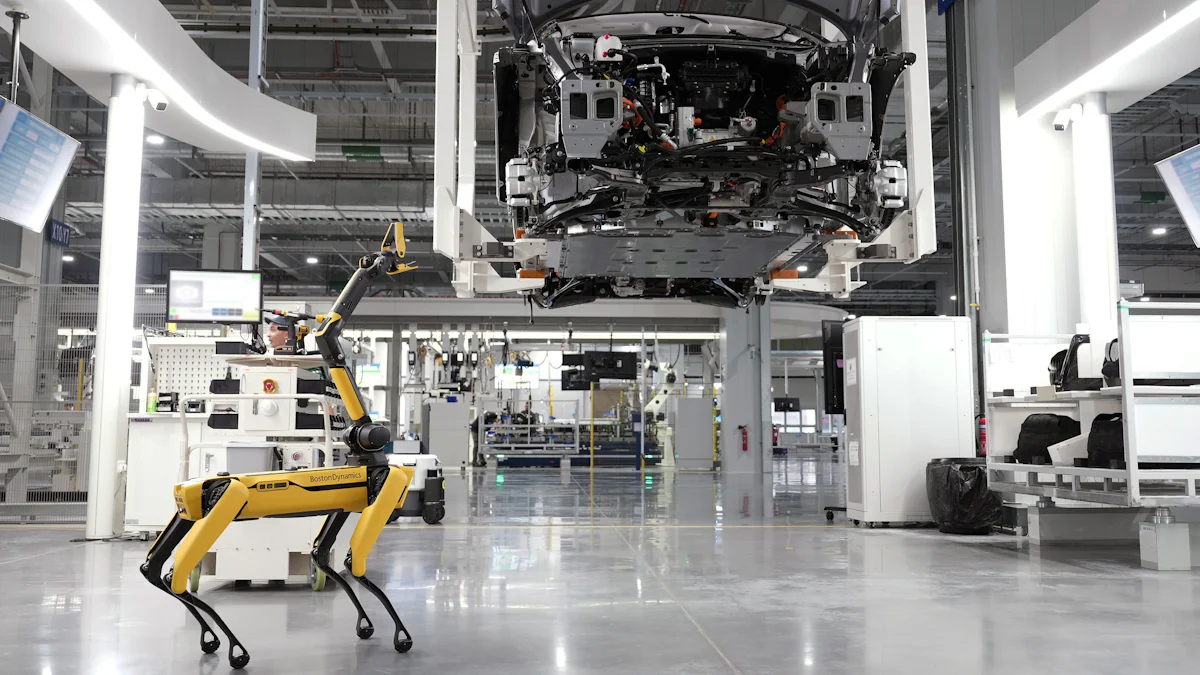
News

You can transform your operations with tools like the Variable Frequency Inverter. This device adjusts motor speed to match task demands, saving energy. In fact, frequency inverters often reduce energy use by 25% to 70%. The Vector Frequency Inverter also enhances precision, ensuring motors perform efficiently and reliably in industrial settings.
Key Takeaways
Frequency inverters save 25% to 70% energy, cutting costs and pollution.
They improve motor control, making machines run smoothly and last longer.
Adding frequency inverters helps systems grow and adjust quickly to changes.
Frequency Inverters in Industrial Automation
Enhancing Energy Efficiency
You can significantly reduce energy consumption in industrial automation by using a frequency inverter. These devices adjust motor speed by converting fixed supply frequency into variable frequency and voltage. This precise control ensures motors only use the energy required for the task, minimizing waste. In cyclical or braking applications, frequency inverters recover energy and return it to the power grid, further enhancing energy efficiency.
Industries worldwide have achieved remarkable results with this technology:
In the railway sector, frequency inverters capture kinetic energy during braking and convert it into electricity.
HVAC systems in large buildings optimize fan and pump speeds, reducing energy use while maintaining comfort.
Water treatment facilities use inverters to regulate flow accurately, improving efficiency and equipment longevity.
By lowering energy consumption, frequency inverters also reduce mechanical stress, maintenance costs, and carbon emissions.
Precision Motor Control
Frequency inverters provide unmatched precision in motor control. They use advanced processes like rectification, filtering, and inversion to regulate motor speed and torque. Rectification converts AC power into DC, while filtering ensures stable voltage. Inversion then transforms the DC back into variable frequency AC, allowing you to fine-tune motor performance.
This precision is essential in applications requiring consistent speed and torque, such as conveyor systems or cranes. With a frequency inverter, you can achieve smoother operations, reduce wear on equipment, and enhance overall productivity.
Supporting Scalable Systems
Frequency inverters play a critical role in scaling industrial systems. They allow dynamic speed adjustments based on operational needs, ensuring flexibility as your system grows. Real-time monitoring capabilities enable immediate adjustments, making your operations more adaptable.
For example, in large-scale manufacturing, inverters provide precise motor control to handle varying load requirements. Their regenerative capabilities also return energy to the grid, boosting overall efficiency. By integrating frequency inverters, you can create scalable, energy-efficient systems that meet the demands of modern industrial automation.
Benefits of Frequency Inverters
Lower Energy Costs
Using a frequency inverter can drastically reduce your energy expenses. These devices optimize motor speed, ensuring that motors only consume the energy required for specific tasks. For example, centrifugal fans and pumps benefit significantly from this technology. The horsepower needed decreases proportionally to the cube of the speed. By reducing fan speed, you can achieve substantial energy savings, often recovering the initial investment in just a few years.
Please give us a message